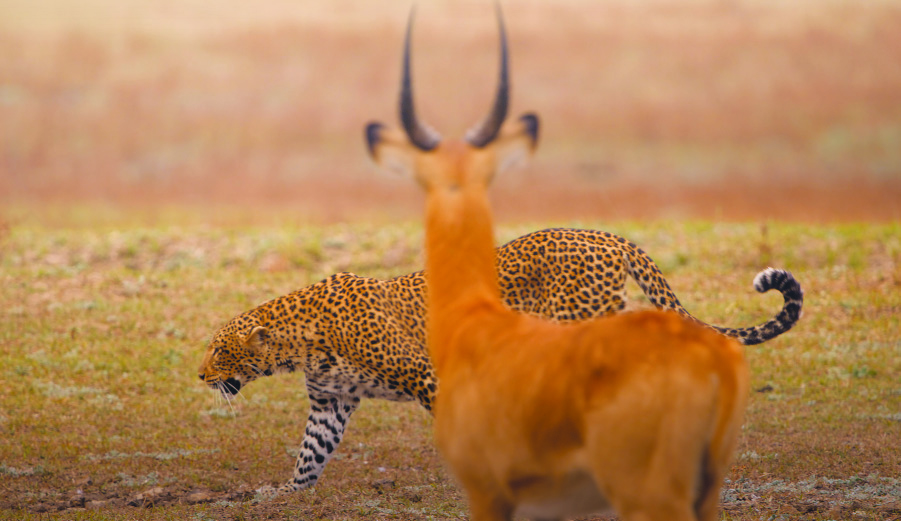

Producers of a new BBC wildlife documentary series that will soon be available to viewers in China say they hope to make audiences aware of the challenges facing the natural world and the animals that live in it "without hitting people over the head with it, and it being too harrowing".
Mammals is a six-part series made by the BBC Studios Natural History Unit and co-produced by BBC America, ZDF, France Televisions, and Youku, on whose platforms it will be available in China from March 31.
Filming of 175 different species, ranging from whales and elephants to the smallest land mammal, the etruscan shrew, which weighs as much as a tea bag, took place in 96 different shoots and locations all over the world, across 1,727 days.
The episodes are entitled Dark, Cold — which features snow leopards in China's Qinghai-Tibet Plateau — Heat, Water, Forest and The New Wild, which focuses on how the world's mammals are adapting to a planet dominated by the most powerful mammal of all, the human.
Some viewers have reportedly found recent BBC natural history programs, which are watched all over the world, hard viewing because of some of the harsh realities about the planet that they have presented.
Lydia Bains, episode producer for The New Wild, said she hoped the animals-first approach taken by Mammals will get the message across in a way that viewers will not find difficult.
"The series is a celebration of the impressive nature of mammals — the fact they've conquered every habitat in the world is testament to how adaptable they are," she said. "Throughout the series, we do address all the bigger global issues, but it's through the eyes of animals, so it's animal behavior first, not habitat first. That can be quite a strong way to show the changes of the world — we're trying to walk a fine line."
With more than 1,000 species of bats alone, the mammal kingdom has a vast number of potential storylines for filmmakers to choose from, and series producer Scott Alexander said they hope viewers will be both educated and entertained by the variety of topics chosen.
"A series like this is a four- or five-year project, so we spend a year looking for the best stories, then select the very best from those, as it's important we give viewers a range of tone, emotion, and character," he said. "You want a hunting story, a sad story, a parenting story, one that people will talk about afterwards, and also in a world with so much hunting, stories with humor go a long way.
"The first episode, about the world of darkness, does that. There are two powerful hunting sequences, involving leopards and hyenas, then there's a pair of amorous armadillos trying to mate, a family of etruscan shrews, and finally fennec foxes in the North African desert."
Alexander said the appeal of mammals to filmmakers and viewers was their supremacy, and the fact that humans are mammals too.
"Mammals are incredible, they're adaptable, in every continent, in every ocean, and from the top of mountains to deep in the sea," he said. "They hop, run, burrow, they're underground and they can fly. The range of what they do is amazing and it's partly due to their incredible intelligence. The fact they can find themselves in so many different environments, in teams or solitary, and they make it work — that's the key to their success."